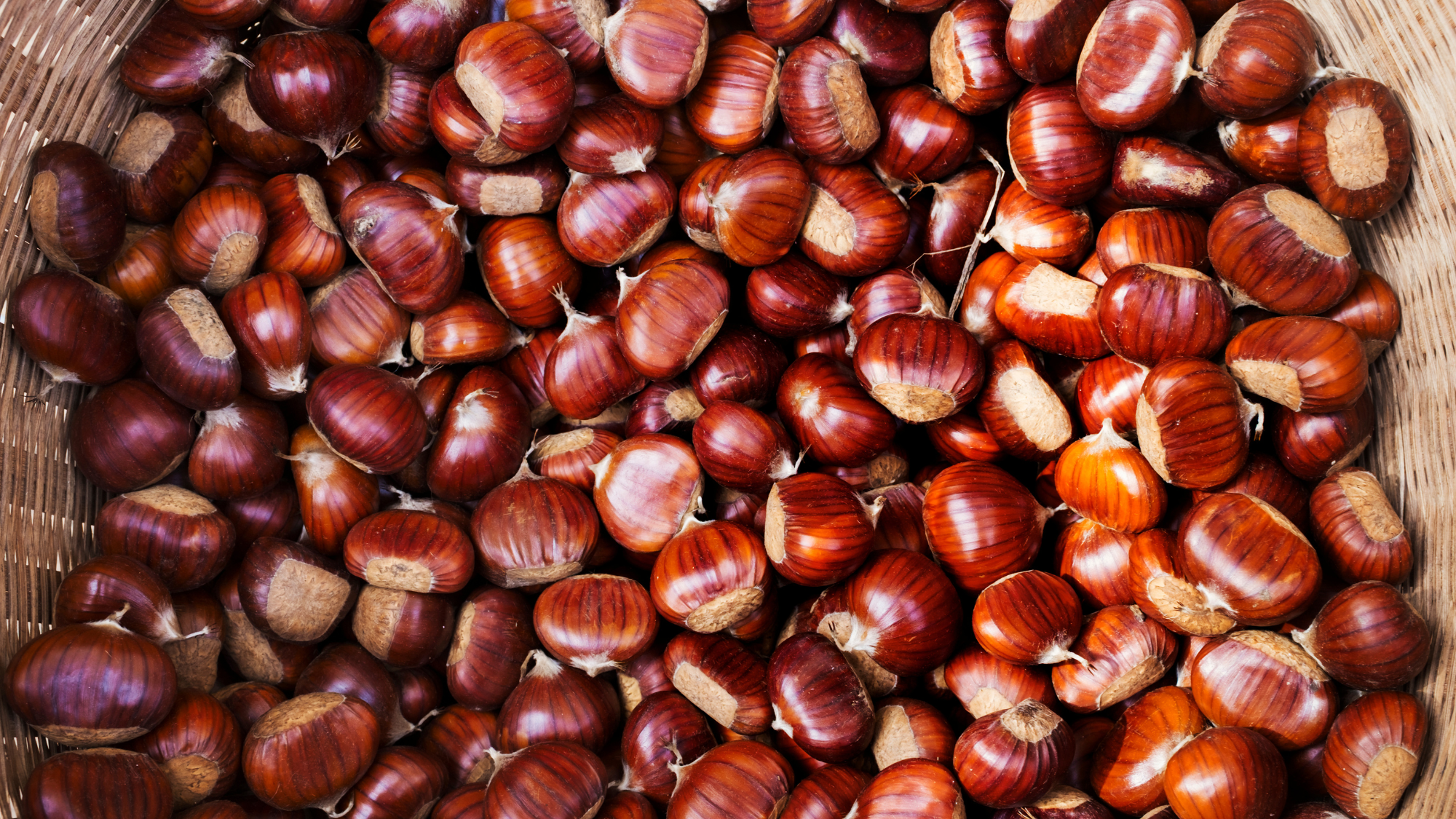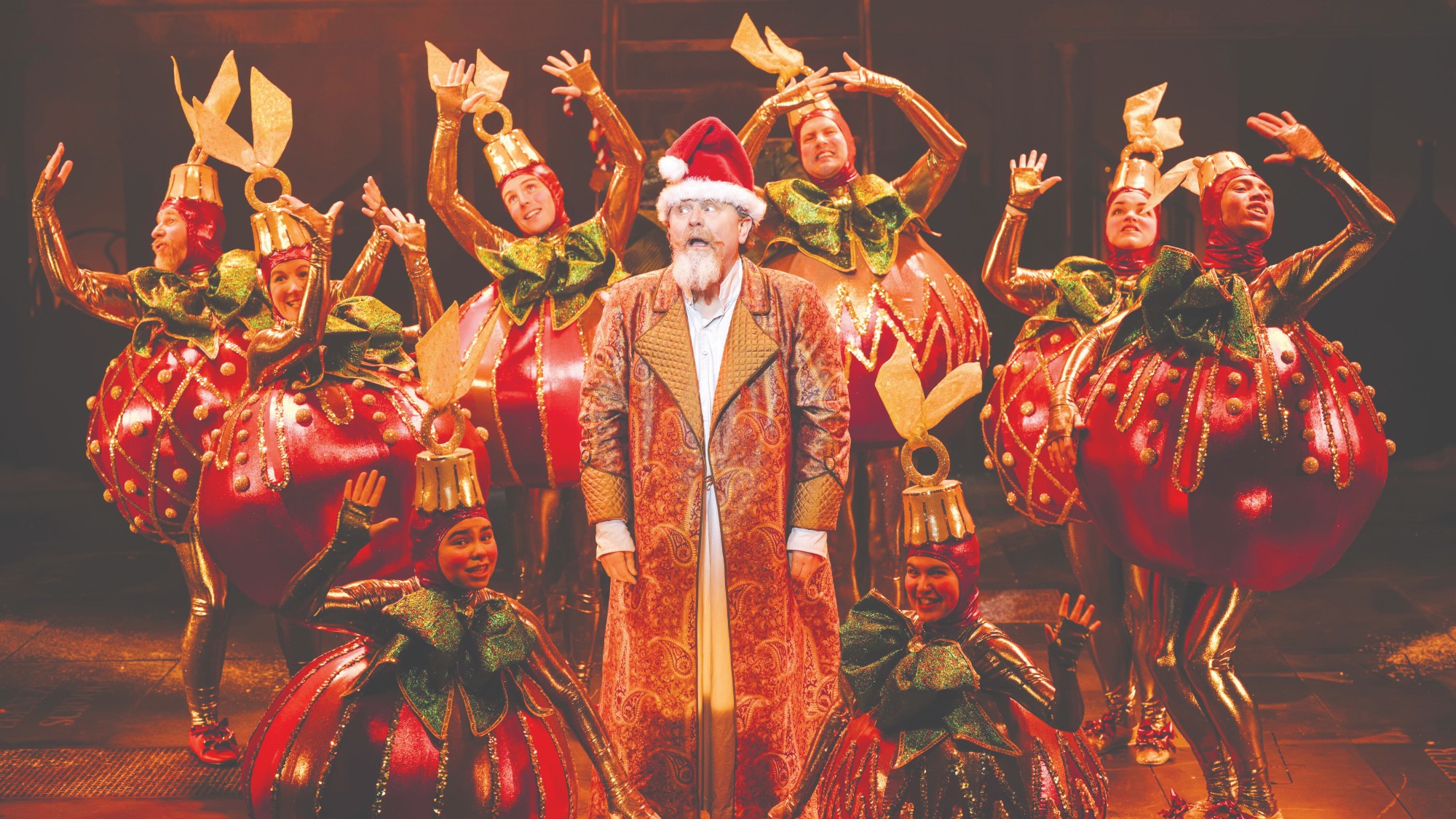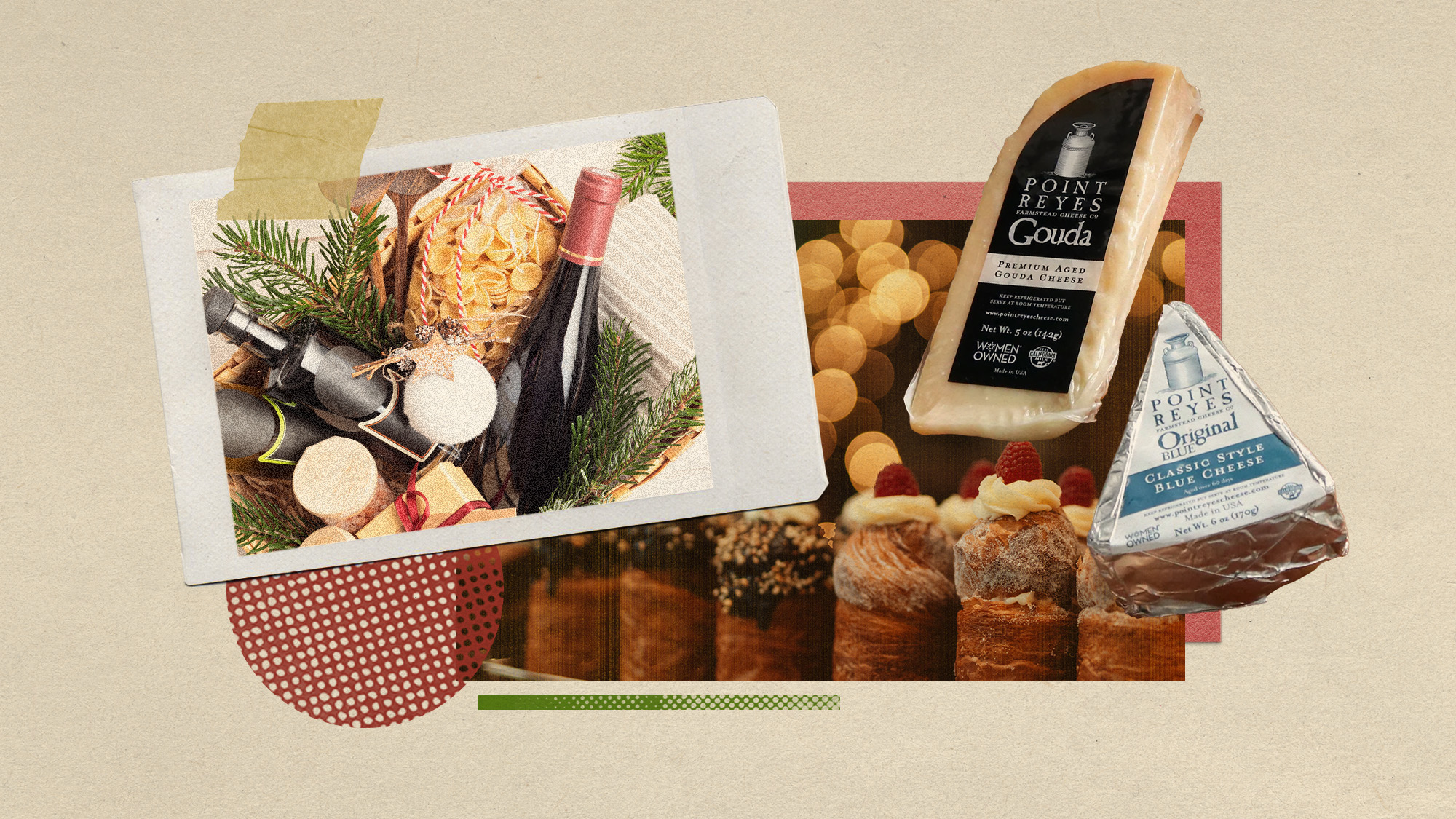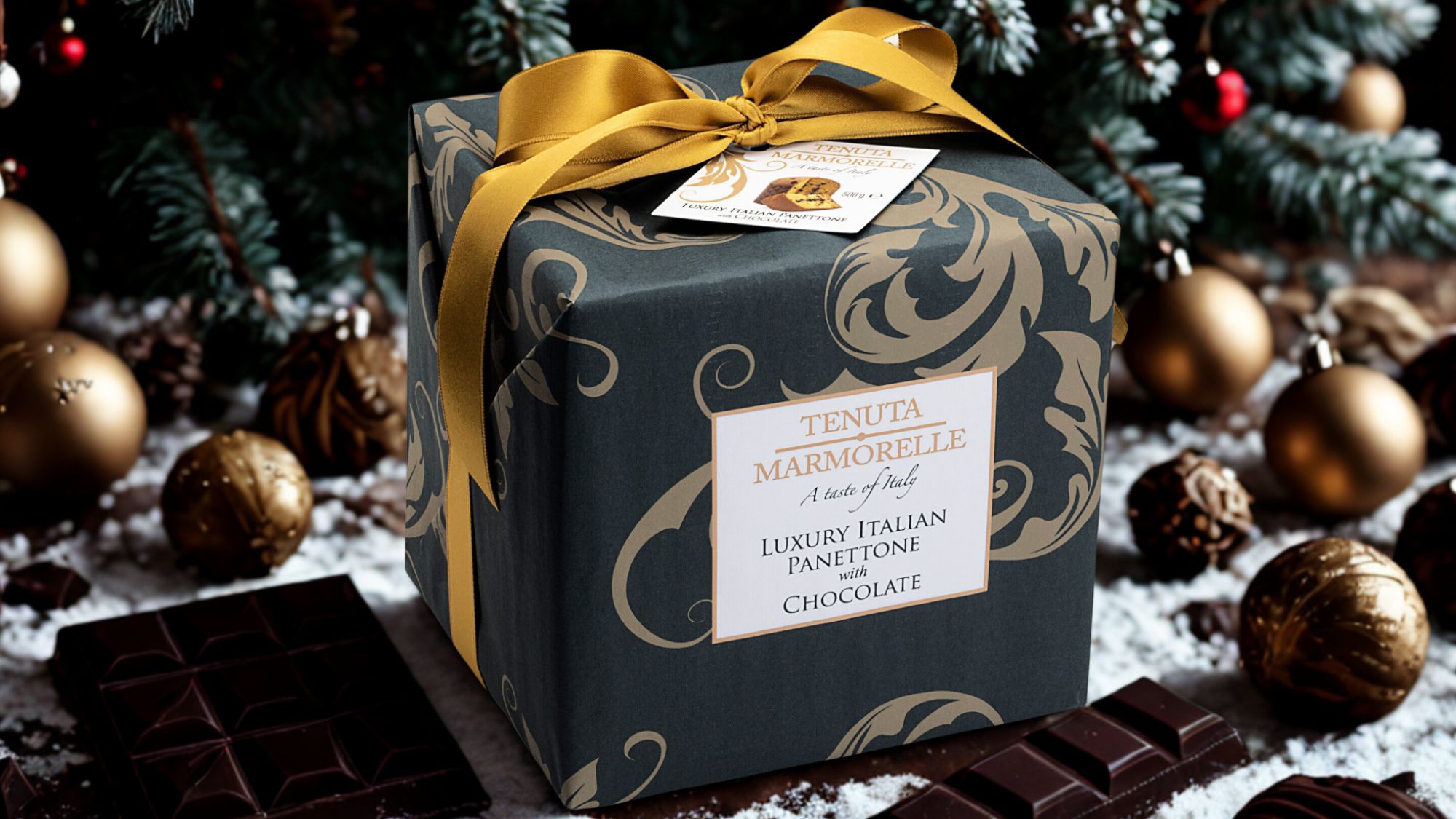How to plan a green Christmas
Cut your carbon emissions this festive season with rented trees and meal planning

A free daily email with the biggest news stories of the day – and the best features from TheWeek.com
You are now subscribed
Your newsletter sign-up was successful
Christmas is a time for indulgence, but that doesn’t have to mean compromising on environmental priorities.
Between the gifts and the food shopping, it’s easy for the waste to accumulate over the festive period. But “what to do without being a Grinch”, asked Francesca Steele at the i news site. Try “shifting focus” rather than “removing things”, and opt for eco-alternatives where possible.
From tinsel to table dressing, here are some of the top tips for an eco-friendly Christmas.
The Week
Escape your echo chamber. Get the facts behind the news, plus analysis from multiple perspectives.

Sign up for The Week's Free Newsletters
From our morning news briefing to a weekly Good News Newsletter, get the best of The Week delivered directly to your inbox.
From our morning news briefing to a weekly Good News Newsletter, get the best of The Week delivered directly to your inbox.
Oh Christmas tree
“Every year up to eight million Christmas trees are bought in the UK,” said Yahoo News, “and around seven million of those end up in landfill.” A dumped tree without roots has a carbon footprint of 16kg of CO2 emissions, according to the Carbon Trust. And as it decomposes, it releases methane gas, “which is 25 times more potent as a greenhouse gas than carbon dioxide”.
Replanting your tree or turning it into chippings for the garden can reduce the carbon footprint by as much as 80%. Burning a tree is another option, as the only carbon emitted is the CO2 it stored while growing.
For those who don’t have the space or green-fingered skills to keep the tree alive for another 12 months, a rental scheme is a good option. Springing up around the UK, the schemes allow customers to rent a tree from independent growers for a fixed period before it is collected and taken care of until the following year.
A free daily email with the biggest news stories of the day – and the best features from TheWeek.com
Whether a fake Christmas tree is a good alternative is debatable. The environmental impact of an artificial option used over many years will be less than buying commercially grown trees each year, the Carbon Trust advised. But eco lifestyle magazine Pebble noted “they take five times more energy to produce” and are made of “non-renewable plastics and petroleum-based products”. Sourcing one second-hand is another way to reduce waste.
And if you’re going for the real deal, look for the British Christmas Tree Growers Association or Forest Stewardship Council symbols as certification of eco-friendly growing methods, Pebble advised.
There are less conventional options on the market too. Trees crafted from driftwood are one popular option, and recyclable cardboard versions are easy to find online.
The menu
Sustainability charity WRAP estimates that the number of carrots binned each year in the UK is equivalent to the combined weight of 636,000 reindeer. While not all of that waste is generated over the festive period, it is easy to over-buy and end up with too many leftovers to get through before the January detox.
Planning ahead is key to an eco-feast, and the Love Food Hate Waste campaign has recipe recommendations to cater for parties of different sizes with minimal waste. Be sure to freeze leftovers to reduce food waste too.
Reducing your meat intake is one method frequently touted by environmentalists as a way to lower carbon emissions. And while they aren’t “the magic bullet”, meat alternatives “can help”, said NBC News. Generally, these fake cuts use lower levels of natural resources to produce.
Sourcing seasonal food locally is also a good way to cut the airmiles of your Christmas dinner. Looks like its sprouts all round.
Finishing touches
“Is tinsel canceled?” Penelope Green asked at The New York Times. Eco-orientated hashtags “reveal a new world made from orange-peel garlands and ornaments fashioned from dried apples and dehydrated citrus slices”. And “there is a lot of twine” too.
For those feeling less fruity, paper chains and fabric decorations that can be used year after year can be easily sourced or handmade.
Avoid crackers covered in sparkly material and filled with plastic toys that will be forgotten before the day is out. Choose recyclable bangers that you can fill yourself, or invest in “Forever Crackers”, designed to last, well, forever. Made from fabric, they might not come with the familiar cracking noise, but they will certainly add a bit of glamour to your festive table.
When it comes to wrapping paper, do the “scrunch test”, recommends recycling experts WRAP. If the paper springs back into shape, it can’t go in the green bin due to its plastic content. Choose a recyclable paper, or use colourful cloth wraps and gift boxes instead.
Dress code
According to environmental organisation Hubbub, 7 million Brits will buy something new to wear out in December, “yet one in five of us won’t rewear an outfit to more than one party”. And Hubbub estimates the price tag for these new items totals £330.5m.
Tempting as it might be to buy a new novelty jumper, try hunting through second-hand shops and online retailers to give an old item another lease of life.
The same is true for sourcing Christmas party outfits, and rental apps make this even easier. Try By Rotation or HURR for outfits that sparkle, sustainably. Swapping is another great option that won’t hurt your wallet – try the low-cost swap platform Nuw.
To gift, or not
Money Saving Expert founder Martin Lewis thinks “it’s time to launch a manifesto to ban many Christmas presents”. Many in the West are “disconnected from why we give gifts”, and bestowing a knick-knack on someone puts “unfair obligation on others” to buy presents in return.
Though extreme, there’s an environmental point here too. Most adults in the UK will spend around £330 on Christmas gifts, according to GWP Group, but approximately £42m of unwanted presents are thrown into landfill annually.
If an all-out ban is too reminiscent of Scrooge, try sourcing second-hand items. This won’t fix the environmental crisis, but it will save some things from landfill “while they can still offer some utility or joy”, said Annaliese Griffin at The New York Times.
Experiences are another popular option for “the person who wants for nothing and to prevent wastage on items they’ll never use”, said the Evening Standard. Happily, “they also make the perfect last minute present (as all it takes is forwarding an email or printing off a voucher).”
Julia O'Driscoll is the engagement editor. She covers UK and world news, as well as writing lifestyle and travel features. She regularly appears on “The Week Unwrapped” podcast, and hosted The Week's short-form documentary podcast, “The Overview”. Julia was previously the content and social media editor at sustainability consultancy Eco-Age, where she interviewed prominent voices in sustainable fashion and climate movements. She has a master's in liberal arts from Bristol University, and spent a year studying at Charles University in Prague.
-
 Antonia Romeo and Whitehall’s women problem
Antonia Romeo and Whitehall’s women problemThe Explainer Before her appointment as cabinet secretary, commentators said hostile briefings and vetting concerns were evidence of ‘sexist, misogynistic culture’ in No. 10
-
 Local elections 2026: where are they and who is expected to win?
Local elections 2026: where are they and who is expected to win?The Explainer Labour is braced for heavy losses and U-turn on postponing some council elections hasn’t helped the party’s prospects
-
 6 of the world’s most accessible destinations
6 of the world’s most accessible destinationsThe Week Recommends Experience all of Berlin, Singapore and Sydney
-
 The best alcohol-free alternatives for Dry January
The best alcohol-free alternatives for Dry JanuaryThe Week Recommends Whether emerging from a boozy Christmas, or seeking a change in 2026, here are some of the best non-alcoholic beers, wines and spirits to enjoy
-
 How to make the most of chestnuts
How to make the most of chestnutsThe Week Recommends These versatile nuts have way more to offer than Nat King Cole ever let on
-
 A Christmas Carol (or two)
A Christmas Carol (or two)The Week Recommends These are the most delightful retellings of the Dickens classic from around the country
-
 How weight-loss jabs are changing the way we eat
How weight-loss jabs are changing the way we eatIn The Spotlight Anti-obesity drugs have been a boon for Babybel but are supermarkets ready for a slimmed-down Christmas?
-
 Oh yes they are! The UK’s best Christmas pantos
Oh yes they are! The UK’s best Christmas pantosThe Week Recommends Dive into the festive cheer, even into the new year, with some traditional favourites and modern twists
-
 11 extra-special holiday gifts for everyone on your list
11 extra-special holiday gifts for everyone on your listThe Week Recommends Jingle their bells with the right present
-
 May your loved ones eat, drink and be merry with these 9 edible Christmas gifts
May your loved ones eat, drink and be merry with these 9 edible Christmas giftsThe Week Recommends Let them eat babka (and cheese and licorice)
-
 Best panettones for Christmas 2025: tried and tasted
Best panettones for Christmas 2025: tried and tastedThe Week Recommends Festive, fluffy and full of joy, these panettones provide magic in every bite